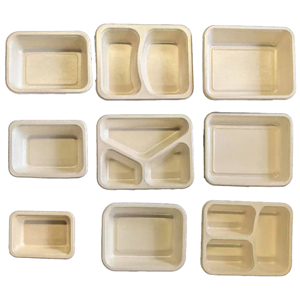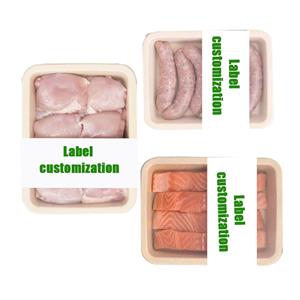Hazards of long-term use of plastic tableware
Harmful to human health
1. Causes kidney stones
Some lunch boxes on the market that fail to meet the quality inspection standards will be added with paraffin and industrial calcium carbonate during the manufacturing process. If these unqualified plastic lunch boxes are used for a long time, paraffin will cause diarrhea. Calcium carbonate slowly accumulates in the human body, leading to constipation and kidney stones.
2. Break through the human immune system
Some plastic lunch boxes will be added with fluorescent powder, plasticizer, phthalate and other harmful substances in the production process. When the plastic lunch box encounters hot food, these harmful substances will be separated out, enter the food, and accumulate in the human body for a long time, which will reduce the human immunity. Physical decline.
3. Carcinogenic
The main component of the disposable lunch box that we usually order or pack is PVC, which is unstable in nature. When the temperature of food or liquid in the lunch box reaches above 65 ℃, hydrogen chloride toxic gas will be released. Poisoning caused by food entering the human body may cause serious cancer risk.
Harmful to the environment
1. Contaminated soil
How do we deal with the disposable plastic lunch boxes we used in life? Most of them are buried intensively. However, plastic products can not be naturally digested for a long time, and the soil is soft after burial, so harmful substances such as viruses and bacteria in these plastic wastes will enter the soil and cause land pollution.
The degradation time of plastic products usually takes at least 200 years. Waste agricultural film and plastic bags left in the field for a long time will affect the absorption of water and nutrients by crops, inhibit the growth and development of crops, and cause crop yield reduction. If livestock eat plastic film, it will cause digestive tract disease and even death.
Due to the soft foundation of the site after plastic film landfill, bacteria, viruses and other harmful substances in the garbage are easy to penetrate into the ground, polluting the groundwater and endangering the surrounding environment.
If waste plastics are directly incinerated, it will cause serious secondary pollution to the environment. When plastic is incinerated, not only a large amount of black smoke is produced, but also dioxins, the most toxic substance by far, are produced. Dioxins enter the soil, and it takes at least 15 months to gradually decompose, which will harm plants and crops; Dioxins have serious damage to the liver and brain of animals.




